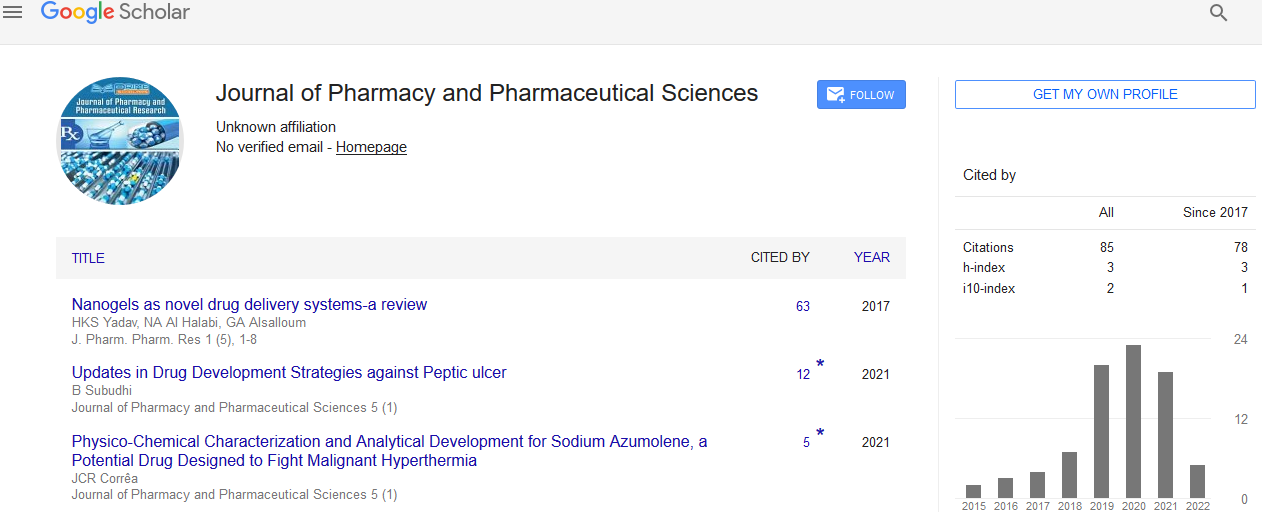Commentary - (2024) Volume 8, Issue 2
Advancing Medicine through Clinical Research: A Comprehensive Overview
Joseph James*
Department of Pharmaceutical Research, University of Chicago, USA
*Correspondence:
Joseph James,
Department of Pharmaceutical Research, University of Chicago,
USA,
Email:
Received: 29-May-2024, Manuscript No. IPIPR-24-19951;
Editor assigned: 31-May-2024, Pre QC No. IPIPR-24-19951 (PQ);
Reviewed: 14-Jun-2024, QC No. IPIPR-24-19951;
Revised: 19-Jun-2024, Manuscript No. IPIPR-24-19951 (R);
Published:
26-Jun-2024, DOI: 10.21767/ipipr.8.02.011
Description
Clinical research serves as the cornerstone of medical
advancement, driving innovation, improving patient care, and
shaping evidence-based practice guidelines. It encompasses
a broad spectrum of studies designed to investigate the
safety, efficacy, and effectiveness of medical interventions,
diagnostic tools, preventive measures, and healthcare delivery
models. In this article, we provide a comprehensive overview
of clinical research, its key components, methodologies,
ethical considerations, and its profound impact on healthcare
outcomes and patient well-being. Observational studies, such
as cohort studies, case-control studies, and cross-sectional
studies, observe and analyse data from participants in their
natural environment without intervention. These studies are
valuable for identifying associations, risk factors, and trends
in disease occurrence and outcomes. Interventional trials,
including randomized controlled trials and clinical trials,
evaluate the safety and efficacy of medical interventions,
treatments, drugs, devices, or procedures by comparing
experimental interventions to standard-of-care or placebo
controls. Epidemiological research investigates the distribution
and determinants of health-related states or events in
populations, aiming to identify patterns, risk factors, and
trends in disease occurrence, prevalence, and mortality.
Health services research examines the organization, delivery,
utilization, and outcomes of healthcare services to optimize
healthcare delivery, improve patient outcomes, and inform
health policy decisions. A detailed plan outlining the objectives,
study design, methodology, eligibility criteria, interventions,
endpoints, statistical analysis plan, and ethical considerations
of the research study. The process of providing participants
with comprehensive information about the study purpose,
procedures, risks, benefits, and alternatives to participation,
allowing them to make voluntary and informed decisions
about their involvement. Ethical oversight by an independent
committee responsible for reviewing and approving research
protocols to ensure participant safety, welfare, and adherence
to ethical principles. Systematic collection, recording, and
analysis of research data using standardized methods and tools
to evaluate study outcomes, efficacy, safety, and statistical
significance. Strategies for identifying, recruiting, enrolling,
and retaining eligible participants in the study, ensuring
adequate sample size and representation to achieve study
objectives. Ethical principles and guidelines play a central
role in protecting the rights, safety, and welfare of research
participants and upholding the integrity and credibility of
clinical research. Ensuring voluntary, informed consent from
participants and respecting their right to withdraw from
the study at any time without penalty. Maximizing benefits
and minimizing risks to participants, ensuring that potential
benefits outweigh potential harms, and prioritizing participant
welfare. Ensuring equitable distribution of research benefits
and burdens, avoiding exploitation, and promoting fair access
to research opportunities for diverse populations. Maintaining
scientific integrity, transparency, and honesty in all aspects
of research conduct, reporting, and dissemination of study
findings. Generating new insights, discoveries, and evidencebased
guidelines that improve understanding of disease
mechanisms, treatment efficacy, and preventive strategies.
Translating research findings into clinical practice guidelines,
diagnostic tools, treatments, and interventions that enhance
patient outcomes, quality of life, and survival rates. Informing
health policy decisions, regulatory frameworks, reimbursement
policies, and public health initiatives based on robust evidence
and real-world effectiveness data.
Acknowledgement
None.
Conflict Of Interest
The author declares there is no conflict of interest.
Citation: James J (2024) Advancing Medicine through Clinical Research: A Comprehensive Overview. J Pharm Pharm. 8:011.
Copyright: & copy; 2024 James J. This is an open-access article distributed under the terms of the Creative Commons Attribution License, which permits unrestricted use, distribution, and reproduction in any medium, provided the original author and source are credited.

